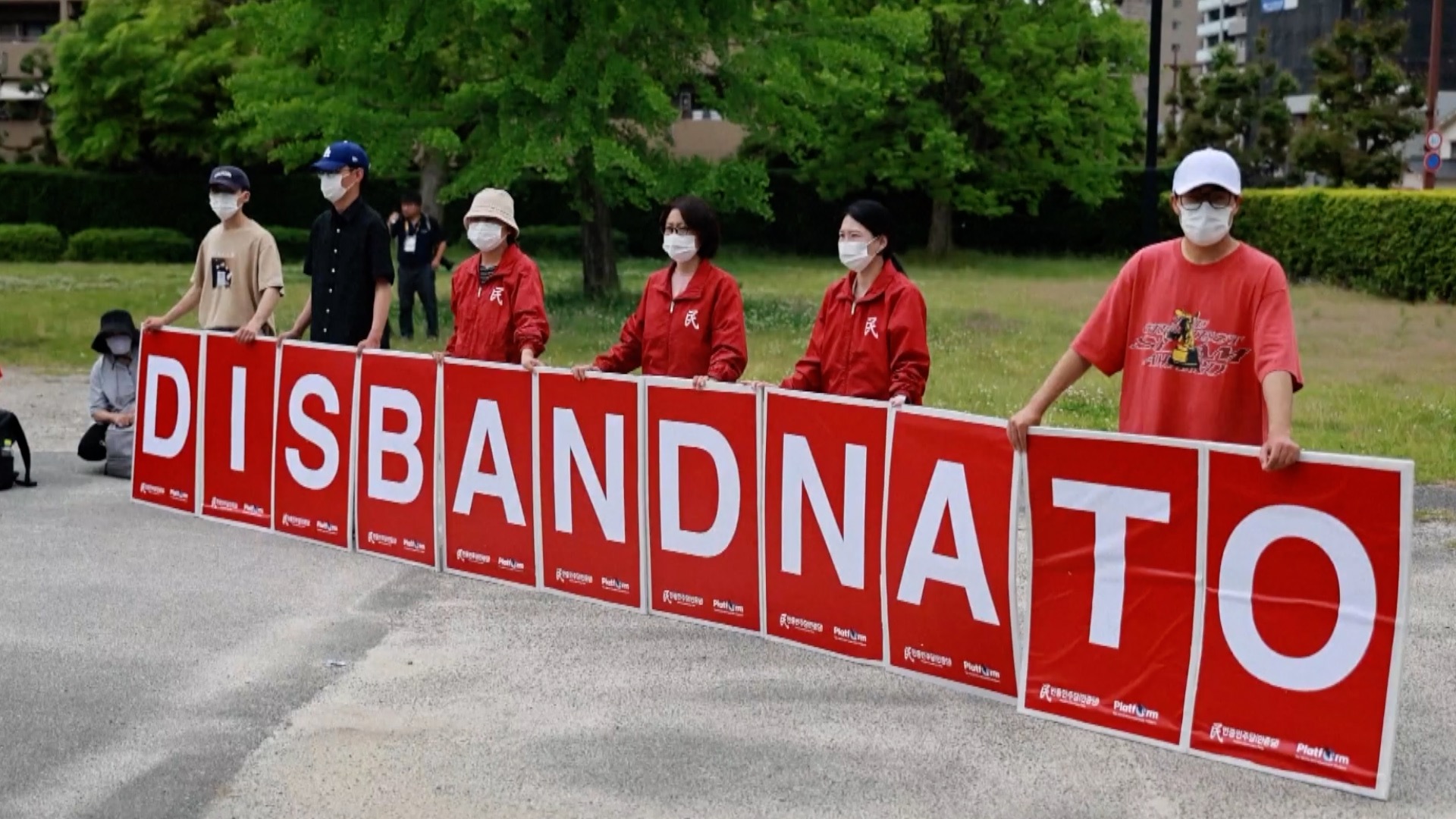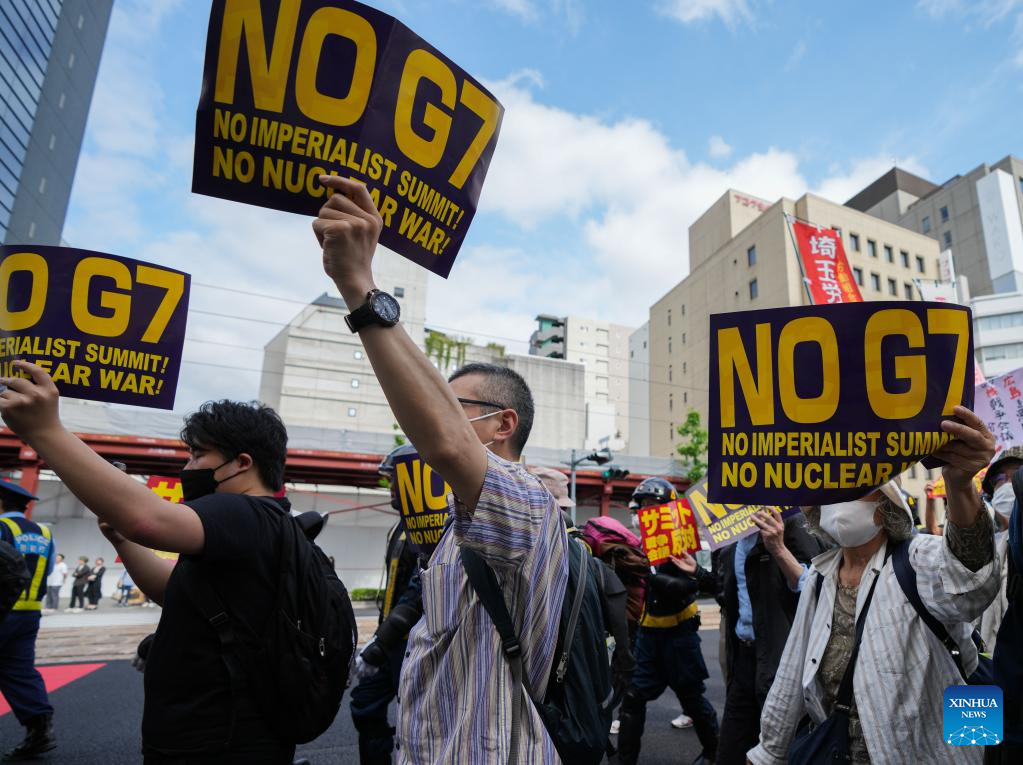On Saturday, gathering at the Senda Park in central Hiroshima, Japan, people from the U.S., the Philippines and South Korea joined local demonstrators and held banners that accused the annual Group of Seven (G7) summit of interfering in Asian affairs, being a tool of a U.S. global military strategy and posing a threat to regional stability.
"We came from South Korea to participate in the demonstration against the G7 summit," a protester told China Media Group (CMG).
The G7 summit in Hiroshima, held from May 19 to 21 this year, has sparked demonstrations in Japan and criticism around the world.
01:29

Who is 'the real coercer'?
On Saturday, the Chinese Foreign Ministry responded to the G7 summit's hyping up of China-related issues, including claims about "economic coercion" that allude to China and comments on the situation in the Taiwan Straits.
Urging the G7 group not to become an accomplice in economic coercion, the ministry said that "the massive unilateral sanctions and disrupting industrial and supply chains make the U.S. the real coercer."
The number of the sanctions imposed by the U.S. government soared by 933 percent between 2000 and 2021. The United States has slapped unilateral economic sanctions on nearly 40 countries, affecting nearly half of the world's population.
According to experts, the U.S. and its Western allies are the "major perpetrators of economic coercion" that have inflicted suffering on millions of people around the world.
Research by Francisco Rodriguez, a professor at the University of Denver's Josef Korbel School of International Studies, has found that economic coercion by the U.S. and its allies has devastated vulnerable groups in targeted countries and degraded living standards.
According to Rodriguez, 30 of 32 studies on the effects of economic sanctions by the U.S. and its allies found that they had negative effects on outcomes including per capita income, poverty, inequality, mortality and human rights.
Given that the U.S. is by far the world's biggest deployer of unilateral coercive measures, it is hypocritical for the G7 to accuse China of economic coercion, said Jeffrey David Sachs, professor of sustainable development and professor of health policy and management at Columbia University.
"Rather than accusing China of what the G7 itself does, a much better approach by the G7 would be to call for discussions with China so that all countries ensure that economic and trade measures are compatible with the UN Charter and World Trade Organization rules," Sachs said.
Carlos Martinez, co-editor of Friends of Socialist China, a London-based platform, echoed Sachs by saying that "any accusation of Chinese economic coercion is beyond absurd."

People rally in a protest against the Group of Seven (G7) summit in Hiroshima, Japan, May 20, 2023. /Xinhua
People rally in a protest against the Group of Seven (G7) summit in Hiroshima, Japan, May 20, 2023. /Xinhua
Gone are the days of meddling in other countries' internal affairs
"Gone are the days when a handful of Western countries can just willfully meddle in other countries' internal affairs and manipulate global affairs," a spokesperson for the Chinese Foreign Ministry said.
Responding to the G7 communique on Taiwan, the spokesperson stressed that resolving the Taiwan question is a matter for China and a matter that must be resolved by China.
Prior to the G7 summit this year, Japanese Prime Minister Fumio Kishida had made comments on Taiwan which were widely questioned and refuted.
The Japanese leader's claim followed the U.S. military policy of encircling China unconditionally, as Japan is pushing for military integration with the United States, said Atsushi Koketsu, emeritus professor at Yamaguchi University of Japan.
"The G7 has descended into a group of old-fashioned countries clinging to the so-called established international political order," said Koketsu, adding that with the international community moving forward to pluralism, the G7's relentless efforts to go against the trend of the times will undoubtedly cause imbalance and injustice in the international community.
(With input from Xinhua)